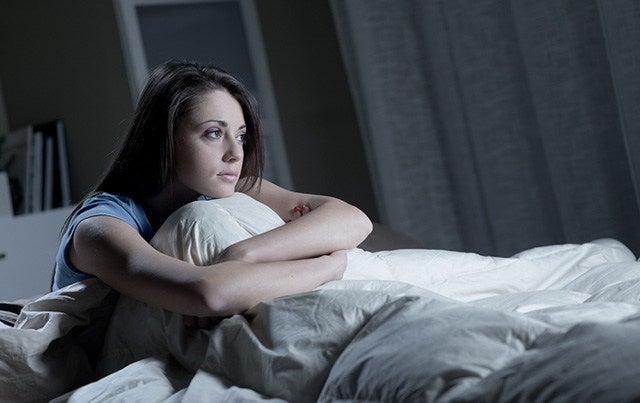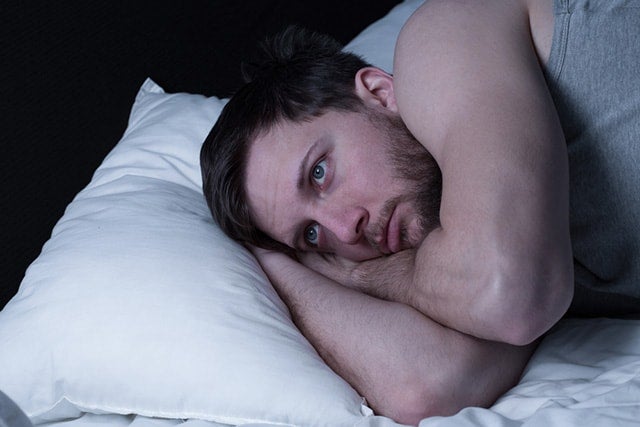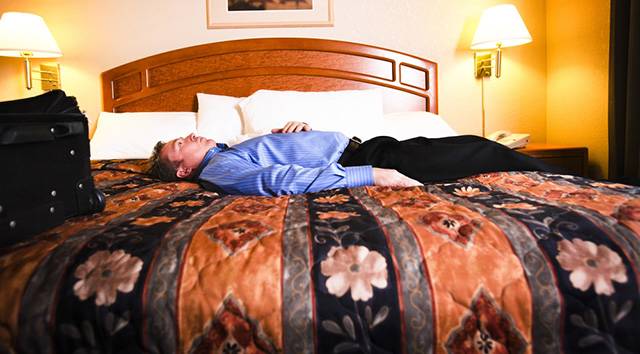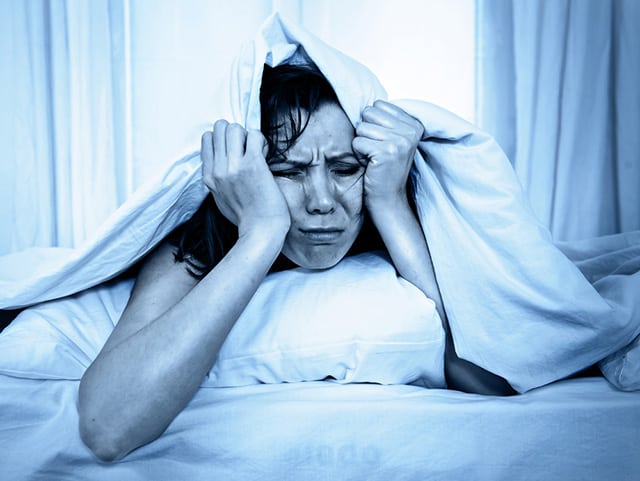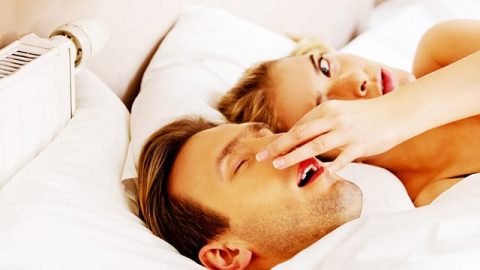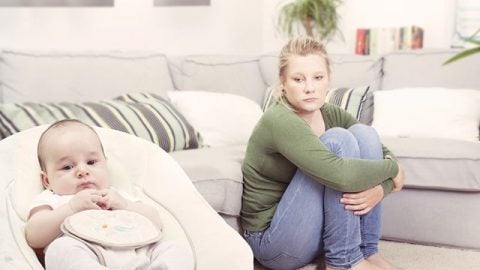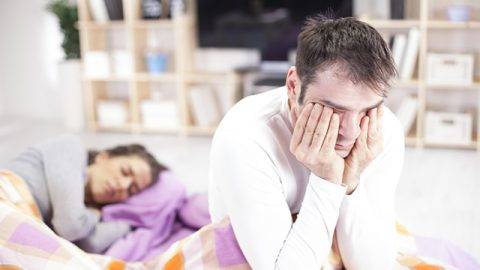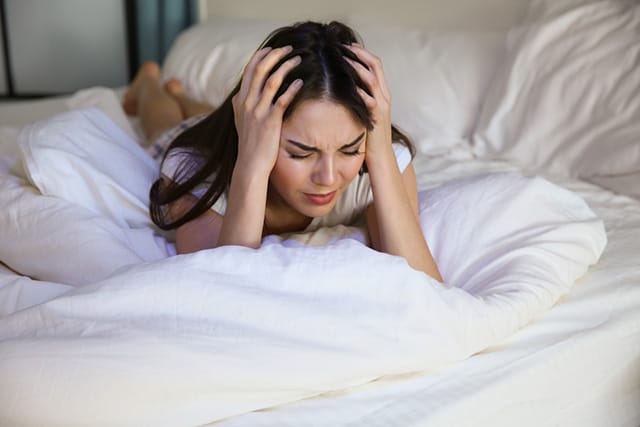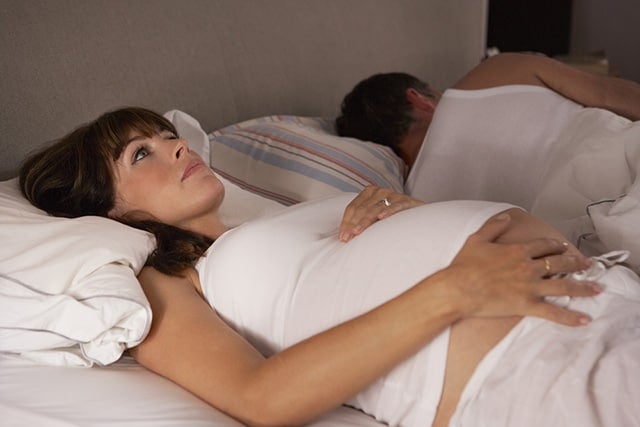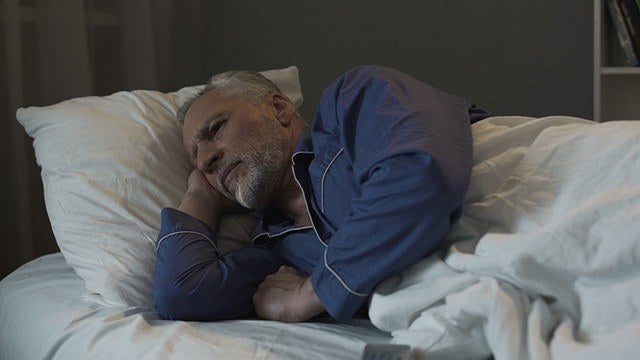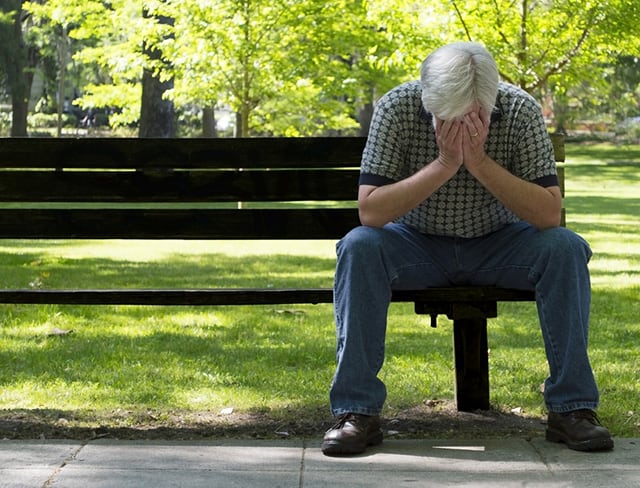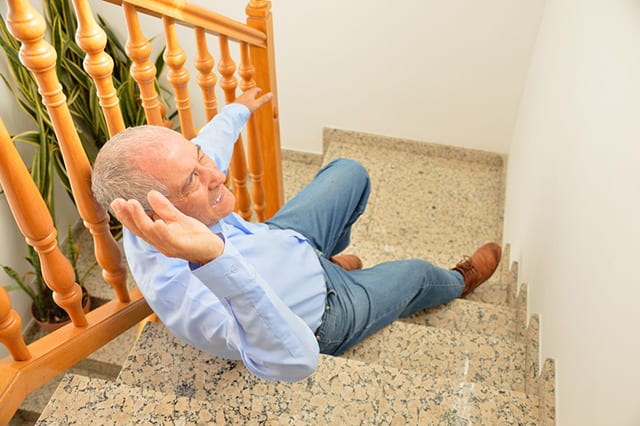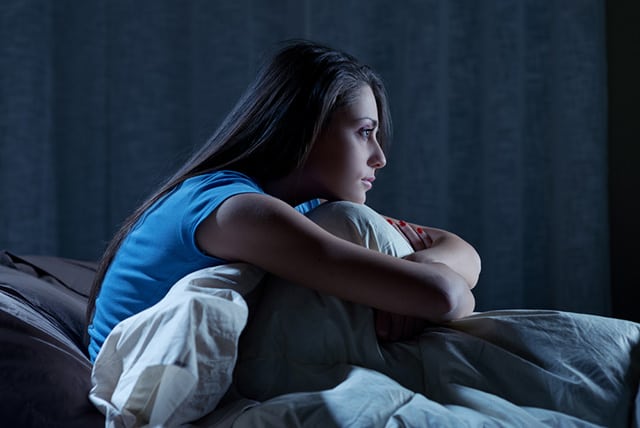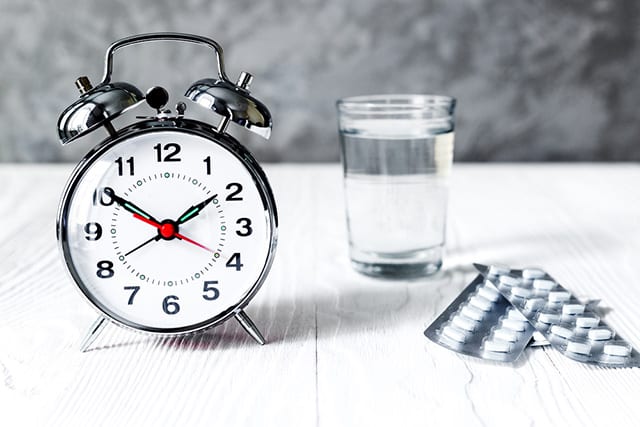Have you ever laid awake at night tossing and turning, wondering why you just can’t seem to fall asleep no matter how hard you try? Maybe you had a rough day and you’re stressed or you had too much caffeine. The possibilities are endless, but if you find yourself doing this over and over again, there’s a good chance that you suffer from a condition called insomnia.
As many as 30 to 35 percent of adults have a complaint about this unfortunate disturbance. What causes it? Why does it happen? What can you do to make sleep easier? Keep reading and we will give you some insight into what sleep insomnia really is.
You may be interested in: Insomnia Statistics – A List Of 16 Eye Opening Stats
What Is Insomnia?
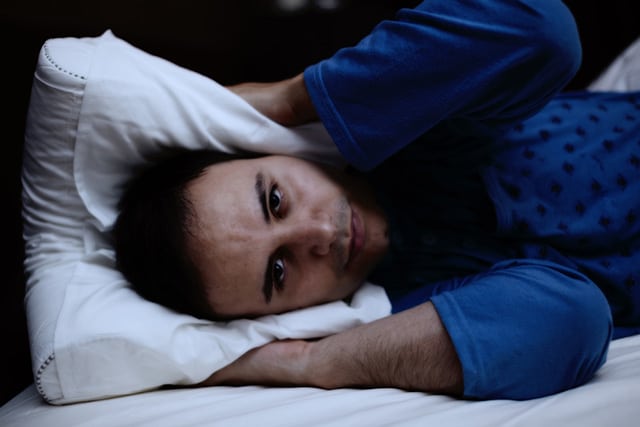
— Acute Insomnia
Acute insomnia is an occurrence that happens briefly due to certain life circumstances such as being stressed or receiving undesirable news. Many people have experienced this when they lose a loved one, times are hard at work, difficulties in a relationship or they’re just so overwhelmed with life that they can’t turn their brains off. This type of insomnia tends to resolve itself without intervention.
— Transient Insomnia
This type of insomnia is very short-lived. The symptoms can last up to three nights and then go away on their own without any medical intervention. This could be caused by stress or discomfort from noises, medications or extreme temperatures. Jet lag is a prime example of transient insomnia.
— Chronic Insomnia
In order for a person to fall into this category, they must experience three nights or more of disrupted sleep per week and lasts at least three months. This can have many causes which include a change in the environment, bad sleep habits, work that happens in shifts, other clinical disorders and some medications. Individuals who suffer from chronic insomnia could also have other medical or psychiatric issues.
Causes Of Insomnia
Insomnia has a number of causes which can include a whole list of things. One major factor is psychiatric and medical conditions, unhealthy sleep habits, biological factors and specific substances. It wasn’t until recently that researchers have begun to think that it is a problem with your brain not being able to be asleep. Your brain naturally has a sleep and wake cycle and when one is on, the other is off. They are thinking that this issue is part of that sleep cycle cycle-too much wake or too little sleep drive.
— Medical Causes
Some medical conditions that can cause this disorder include:
- Asthma
- Endocrine issues
- Gastrointestinal problems
- Arthritis
- Neurological conditions
- Chronic pain conditions
- Lower back pain
Medications that are taken for colds, allergies, blood pressure, heart disease, birth control, asthma, depression, and thyroid disease can also cause insomnia.
— Sleep Apnea
This is another disorder that is linked to the inability to sleep. Apnea happens when somebody’s airway becomes partially or completely obstructed during sleep. This results in paused breathing or a drop in oxygen levels. This can cause a person to wake up for a brief period of time throughout the night. People with apnea occasionally report experiencing insomnia of some kind.
— Depression
One psychiatric condition that can cause insomnia is depression. Those who suffer from psychological struggles can have more of a difficult time falling asleep. Insomnia itself can lead to changes in mood and shifts in hormones, leading to both psychiatric issues and sleep disorders at the same time. Sleep issues may also represent a symptom of depression and those who already suffer from depressive disorders are at a much higher risk for insomnia.
— Anxiety
Not being able to sleep due to worrisome thoughts is very common. However, if it becomes patterned and interferes with your slumber on a regular basis, it’s possible that insomnia has found its way into your life. Some of the anxiety symptoms that can lead to this sleep disorder are:
- The feeling of being overwhelmed by responsibilities
- General feeling of being overstimulated
- Tension
- Stuck in thought about past events
- Excessive worrying about the future
Insomnia Symptoms
There’s a huge list when it comes to symptoms of this condition. Some of them are rather obvious, while others go unnoticed all of the time because of how rare they are. Here’s a list of the symptoms that you may experience with insomnia:
- Poor concentration and focus
- Anxiety
- Depression
- Irritability
- Still tired upon waking up
- Waking earlier than wanting to
- Waking up throughout the night
- Difficulty falling asleep
- Uncoordination
- Tension headaches
- Socialization issues
- Gastrointestinal issues
- Being tired during the day
- Worrying about sleep
Insomnia In Pregnancy
Pregnancy can cause exhaustion, so you would think that would be enough to make somebody sleepy, right? Wrong! No matter how tired you are, there’s always something that’s going to wake you up in the middle of the night. Bathroom breaks, hormones, congestion, heartburn, and a moving baby inside of your belly is more than enough to keep you up at night. Honestly, by the end of pregnancy, you aren’t going to sleep anyway because of how ridiculously uncomfortable you may be. Sleep disturbances can also happen postpartum due to a change in hormones and the time spent tending to the new baby at night.
During the first trimester, you may not experience this as much, but after that, it’s all downhill from there. Even the most comfortable mattress can’t help you unless it’s out-of-this-world amazing and can secretly take all of your worries and fears away. You can manage it easily, however, by setting up good sleep habits.
Insomnia In The Elderly
As you grow older, the more insomnia you’ll have. Statistics show that women, more often than men, experience this. But why is it that when you age, insomnia worsens? Well, the older you get, the more prone you are to experience psychological, social, physical, and situational changes and conditions, all of which can create havoc on your sleep health. Some more reasons as to why the elderly are more susceptible to insomnia are:
- Menopause
- Changes in activity of the brain
- Medication
- Social changes
- Anxiety
- Depression
- Other hormonal changes
Unfortunately, diagnosing older patients is tougher than it is with younger ones for a few reasons. Firstly, a majority of older adults avoid the doctor and just pass off their sleeping issues as a normal part of life. Secondly, many elderly patients are on a mix of medications that can make it difficult to unravel the mix of their medication, social factors, and physical factors. Thirdly, a lot of the elderly patients don’t want to follow through with treatment.
— Insomnia Risks For The Elderly
As with a lot of things, there is an increase in insomnia risk factors for a number of things in elderly patients. Their lack of concentration can lead to accidents that may cause a fire or get them into a car accident. Their increased clumsiness can lead to falling incidents, resulting in injury. Their avoidance of symptoms can lead to a clinical depression, thus increasing sleep disturbance.
Insomnia In Women
It’s a proven fact that women are more likely to have insomnia than men. One of the main reasons for this is due to hormonal changes during menopause and a woman’s menstrual cycle. When a woman is perimenopausal, they can have trouble falling and staying asleep due in part to hot flashes and night sweats. Hormonal changes during pregnancy that affect emotions can also cause a woman to wake up frequently. There are also some medical conditions that can cause secondary insomnia, which is more common in women than men. Some of these can include fibromyalgia, anxiety, depression and restless leg syndrome.
You may be interested in: Why Am I Waking Up at Night?
Insomnia Treatment
There are actually quite a bit of treatment methods that you could use to get yourself back to sleep without resorting to medications or a lengthy sleep study. However, if your condition is too severe to try natural methods, then prescription medication may be your best bet. Before you go to that, try these out first.
— Cognitive Behavioral Therapy
Research has shown that this method is/can be a long-lasting and effective treatment for this condition. Cognitive behavioral therapy helps you change the way you think and the actions that may get in the way of sleep.
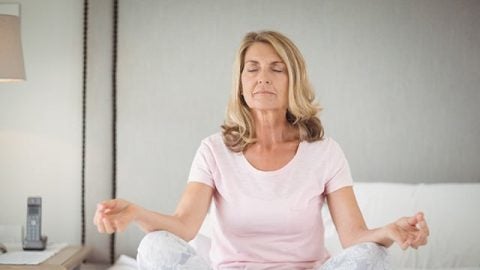
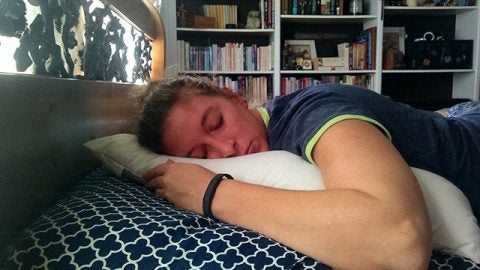

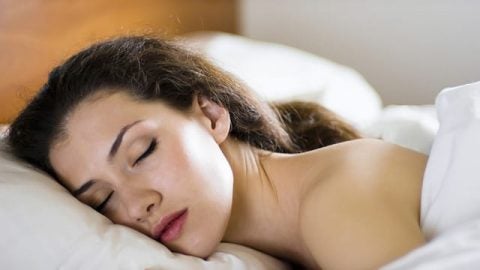
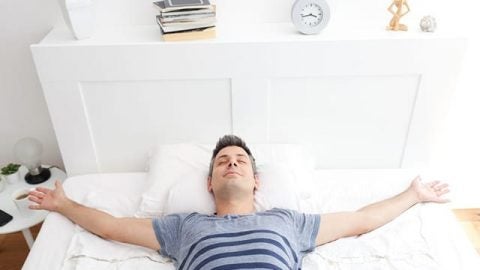

— Changing The Routine




You may want to read: Best Sleep Aids for Insomnia
— Medications
Be advised that this is in no way our recommendation to you if you think you may be suffering from insomnia. These are just some medications that your doctor may have you try. If you think that any of these may be a good choice for you, talk to your doctor first and obtain the diagnosis.

As with all medications, there are some risks which include habit forming problems, masking other medical problems that could be causing the sleep issue, interacting with other medications that could cause serious health problems, and grogginess or rebound insomnia. In severe cases, there could be an allergic reaction or facial swelling, high blood pressure, weakness, nausea, confusion, dizziness, short-term memory loss, and complex sleep-related behaviors.

Remember, do not use anything unless you talk to your doctor first about your sleep issues. Some medications and OTC sleep aids contain antihistamines, which are not safe for some individuals to consume.
Final Thoughts
Insomnia is a heck of a condition to deal with. Not getting enough sleep can run amuck in your life and cause you to make some seriously terrible decisions or cause accidents. If you think that you have a sleep problem that natural remedies are not helping, please see your doctor. They may prescribe you some medications or they may send you for a test or two in order to better understand why you aren’t staying asleep at night. The good news is that there are plenty of remedies that are sure to give you some kind of relief from your sleep woes.
